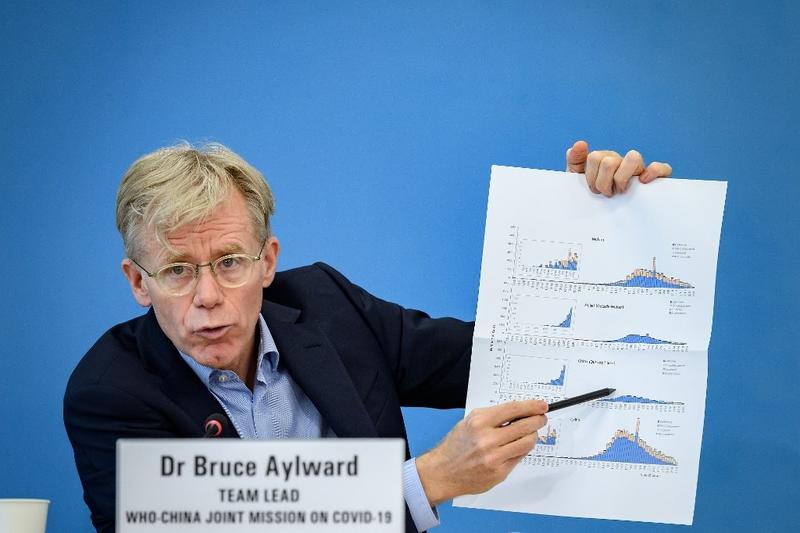 Team leader of the joint mission between World Health Organization (WHO) and China on COVID-19, Bruce Aylward shows graphics during a press conference at the WHO headquarters in Geneva on Feb 25, 2020. (FABRICE COFFRINI / AFP)
Team leader of the joint mission between World Health Organization (WHO) and China on COVID-19, Bruce Aylward shows graphics during a press conference at the WHO headquarters in Geneva on Feb 25, 2020. (FABRICE COFFRINI / AFP)
WASHINGTON - Bruce Aylward, team leader of the China-WHO joint mission on COVID-19, commended China's counterattack against the epidemic, saying that it can be replicated but requires speed, money, imagination and political courage, a US newspaper reported.
The virus testing is free and if it was COVID-19, when patients' insurance ended, the government will pay a larger share of their medical bills for their ensuing treatment, said Aylward
The containment is still possible if countries act quickly "because we don't have a global pandemic -- we have outbreaks occurring globally," Aylward was quoted as saying by the New York Times.
Aylward, who visited China for two weeks in early February, dismissed suspicion that COVID-19 cases in China is not going down.
READ MORE: WHO: COVID-19 not pandemic despite very concerning signs
"It peaked at 46,000 people asking for tests a day; when we left, it was 13,000. Hospitals had empty beds," said Aylward.
"Back of the envelope, it's hundreds of thousands of people in China that did not get COVID-19 because of this aggressive response," said Aylward.
Aylward said China moved half of its medical care online, so "if you needed prescriptions like insulin or heart medications, they could prescribe and deliver it."
Also, the virus testing is free and if it was COVID-19, when patients' insurance ended, the government will pay a larger share of their medical bills for their ensuing treatment, said Aylward.
ALSO READ: Mainland reports 17 new COVID-19 cases outside Hubei
Aylward also praised China's ability of mobilization, noting that about 40,000 people were dispatched to Hubei province and many of them are volunteers.
"They're mobilized, like in a war, and it's fear of the virus that was driving them. They really saw themselves as on the front lines of protecting the rest of China. And the world," said Aylward.


